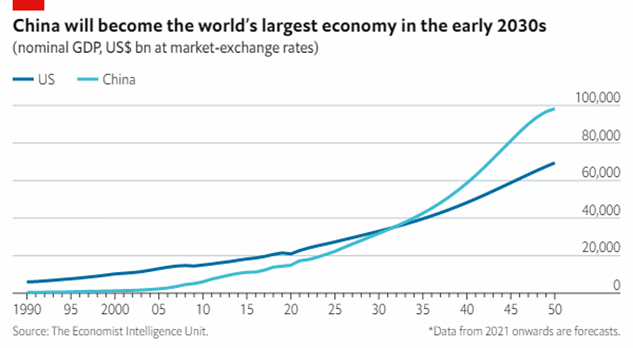China - Twenty Data Measures
The Chinese government believes that data serves as the foundation of digitization and national development. Therefore, increasing the capacities of data elements and improving the digital economy as much as possible should ensure stronger economic growth and a competitive edge on a global level.
China’s 20 measures focus on four main aspects of data development. First of all, working out a data property right to safeguard rights and interests of users. Secondly, creating an efficient and protected data circulation and transportation system, allowing for a better cross-border use of data and a safer transfer of data. Thirdly, the adjustment of the distribution system for data elements revenue, so that more people can benefit from the financial advantages. Lastly, building a multi-party governance model which clarifies obligations and rights and improves the digital market.
What: policy orienting document
Impactscore: 3
For who: digital service providers, policymakers, researchers
URL:
http://www.moe.gov.cn/s78/A01/s4561/jgfwzx_zcwj/202212/t20221221_1035505.html
Summary
The Chinese government has released a new document regarding the development of data systems, consisting of 20 new data measures on different kinds of aspects of the digital market. The official document states: “Data is the basis of digitization, networking and intelligence, and the construction of basic systems for data is a matter of national development and security”. Experts believe that China hereby aims to create a new landmark in data regulation and strives for a global trend that will follow their initiative. This is an important factor, since studies have shown that China will become the world’s largest economy in the near future, surpassing Europe and the United States.

The measures focus on four main topics within the data management field: data property rights, data circulation and transaction, data revenue distribution and security governance. These elements were chosen based upon the latest report from the Central Economic Work Conference, the annual Chinese conference on economic growth and assessment. Achieving these goals will form the basis for an adequate and efficient regulatory framework on data development.
Data property rights
The first part focusses on property rights that would be granted when using public-, corporate- and private data. It is proposed to develop a system that entails the three distinct rights specifying when it is allowed to employ data in a certain manner by the users involved: the right to possess data resources, the right to process and utilize data, and the right to operate data products. For private data, the focus lies on the protection and integrity of the processing. Public data needs to be held confidential and shall only enter the market if proven essential for the national interest and benefit. Companies are encouraged to experiment with new models to jointly use their corporate data and provide data services.
Data circulation and transportation
The second part of data circulation and transportation aims to establish data trading venues, create trading regulations and unite the national standard system for data trading and security. Cross-border trading is also very much encouraged by this goal, however this relies on the cooperation of international partners. If completed, this development should increase data flow, -security, -certification and global features such as digital currency or e-commerce.
Data revenue distribution
The third part aims to promote a fairer distribution of the financial revenue that data systems provide. The measures hereby follow the principle of "whoever invests, who contributes, who benefits", aiming to divide dividends and commissions between all relevant entities of the data processing. By encouraging big data corporations to proactively assert their social responsibilities, vulnerable communities currently left behind should also enjoy better protection.
Data governance
The fourth and final part aims to achieve data governance by granting control to a multi-party group, consisting of the government, enterprises and (representatives of) the community. By making governance safer, more controllable and flexible, it is aspired to achieve compliance notarization, safety review, algorithm review, monitoring the whole process of data element production, circulation, and use and clarification for all parties about their responsibilities and obligations for data element circulation safety.
In general, China hopes to encourage exploration and experimentation in this field, while also fueling global interest to achieving such goals in order to benefit the global market and economy. Further regulations are expected to be released in late 2023 and 2024.